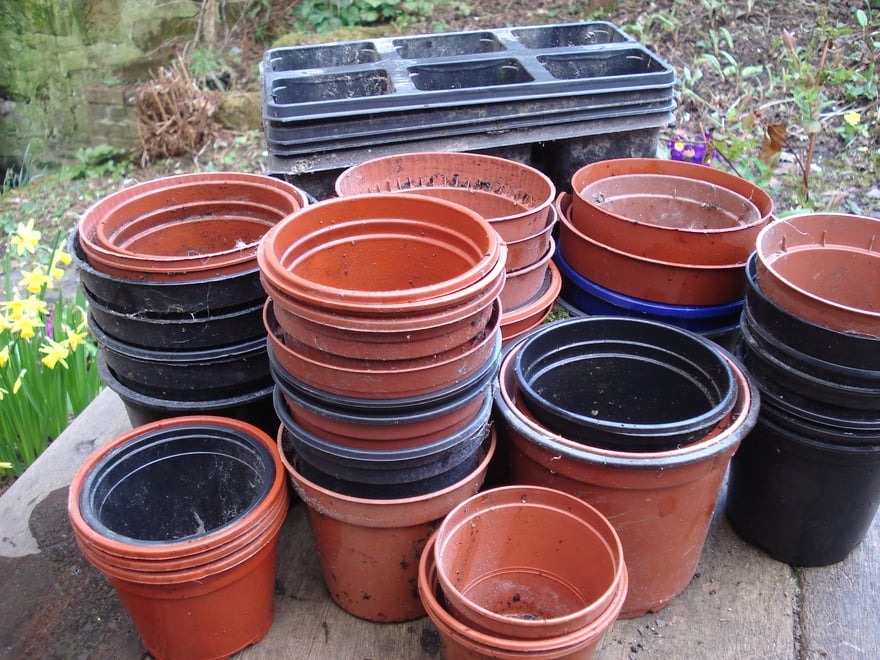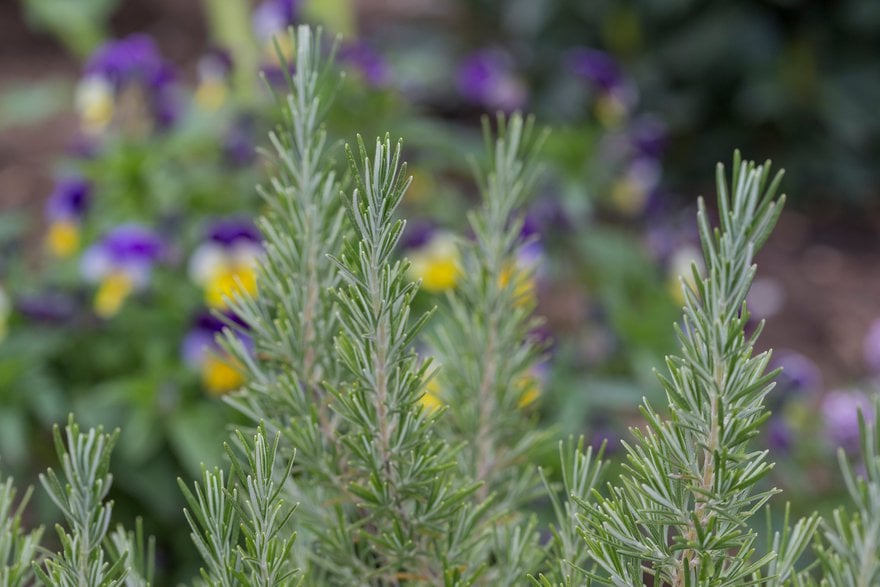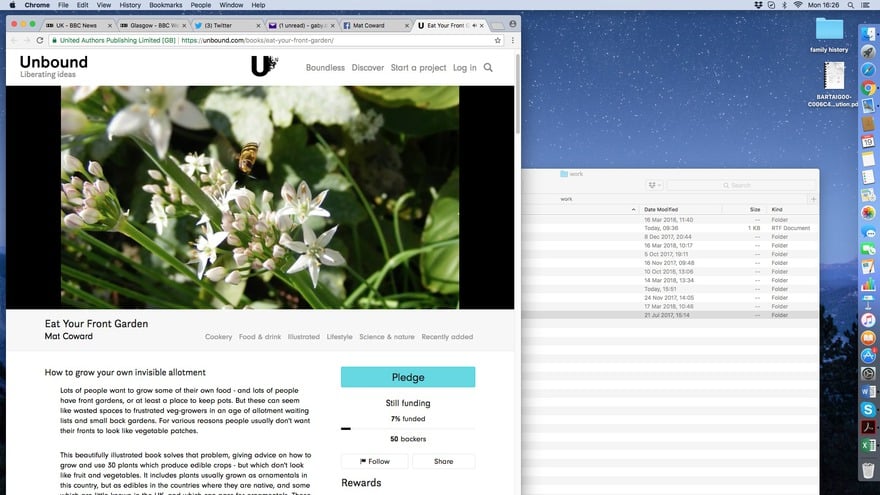This man is one of numerous RHS staff whose name is linked to nature or horticulture! Find out more in Subs Club, for KG subscribers only…
Born to the job! Matthew Pottage, Wisley curator. Picture: RHS/Richard Dawson
The RHS has discovered that nearly one in eight of its 900 staff has a name that can be linked to gardening. Around 12% have a name associated with nature, the outdoors or horticulture – supporting the theory of ‘nominative determinism’, the idea that people are drawn to careers that fit their names.
Nearly a third of the names are taken directly from horticulture, including four Heathers, three Berrys and three called Moss. If you visit an RHS Garden plant centre, you might be served by a Gardiner, Marsh or Shears. More peripheral names include Hill, Moore and Shaw – an old word for a strip of woodland – as well as Bird, Fountaine and Goodacre. The staff at RHS Wisley in Surrey include a Garland, a Garlick and a Greenfield, as well as the garden’s curator Matthew Pottage – who was preceded in the role by Jim Gardiner.
Matthew Pottage says: “I grew up just outside of Hull, where it certainly wasn’t commonplace for people to be pottering in their potagers, so the name connection is perhaps a mystery at face value. But being the curator of RHS Garden Wisley is my dream job, and surely one of the best jobs in the gardening world, so perhaps nominative determinism is at play here!”
More stories from RHS staff about their names and how they came to work for the RHS will be shared at http://www.nationalgardeningweek.org.uk/ This year’s National Gardening Week, which has the theme ‘Share Your Passion for Plants’, runs from April 30 to May 6.
New lives for plastic pots

Not such a potty idea: recycling plant pots
A nationwide scheme is being launched through garden centres to recycle plastic pots and plant trays. Organised by the Horticultural Trades Association (HTA), the scheme will allow customers to return their old pots to participating stores.
Recycling company Ecogen will collect the pots, and is also set to pick up other recyclable materials used by garden centres like hard plastics, cardboard and plastic wrap – so the overall carbon footprint of your garden centre purchases will also be reduced. The HTA is also encouraging suppliers to increase the amount of recyclable packaging in future ranges.
Millions of plastic pots are in circulation but figures suggest few are recycled – though black plastic pots are made from already-recycled material. Garden centres have complained that they cannot economically find recyclers for their waste, and some big chains have therefore dropped previous pot recycling services.
Ferndale Garden Centre managing director Neil Grant says: “We want our customers to enjoy their plants without the guilt associated with single-use plastics. We’ve all been shocked by the amount of plastic floating around our planet especially since the recent TV series Blue Planet 2. As a result it’s made us think again about plastic products.”
The new scheme should take all colours of pots as well as labels and plant trays. Look out for information in your local garden centre later this spring.
Log your local wildlife

Spot the stripy one: this badger seems to be posing for the camera
The People’s Trust for Endangered Species needs gardeners’ help. Each spring it runs its Living With Mammals survey to find out how wild animals use the urban environment and the green spaces within it. This year’s survey has just started and runs through April, May and June.
To take part, all you have to do is record the mammals that you see each week, or any signs they leave behind, such as droppings or footprints. You can choose any green space to survey – a garden, allotment, local park or other area that’s convenient to spend a little time in each week – but the site must be within 200m of a building.
You can register online and log your results on the PTES website each week, or order a printed pack, including full instructions, survey forms and a Spotting Wild Mammals guide, by emailing your name and postal address to [email protected] or calling 020 7498 4533.
Find out more and get involved at https://ptes.org/get-involved/surveys/garden/living-with-mammals/
‘Game-changing’ disease threat

Under threat: rosemary. Picture: RHS/Neil Hepworth
The RHS is warning gardeners to be on their guard against a new disease which could decimate British gardens. Xylella fastidiosa – a bacterium which restricts water movement in plants, resulting in eventual death – has already caused widespread devastation on the Continent, so is likely to arrive in the UK on imported plant material.
Unlike most diseases which are plant-specific, Xylella affects more than 350 different species. Rosemary, lavender, hebe and flowering cherry are thought to be at especially high risk. The disease, which is spread by insects including leafhoppers and froghoppers, is difficult to identify. Infected plants either show no symptoms, or ones which may be confused with other common problems, such as drought or frost damage.
If it is found in the UK, all host plants within 100m would need to be destroyed, and there would be restrictions on the movement of plants within a 5km radius for five years. The RHS is calling on gardeners to guard against the threat by only purchasing host plants that are UK-sourced and grown – that is, propagated from seed in the UK or grown in the UK for a minimum of 12 months.
Gerard Clover, head of plant health at the RHS, says: “Unusually, the disease threatens not just one host but hundreds of different types of garden plants and its impact has been felt dramatically in France, Spain and especially Italy where entire groves of ancient olive trees have been wiped out. The question for the UK is not ‘if’ but ‘when’ the UK will have its first outbreak of Xylella and the industry and public must be prepared for the far-reaching impact of it.”
Find out more at https://www.rhs.org.uk/science/plant-health-in-gardens/protect-your-garden/new-pd-risks
Eat your front garden!

Not merely ornamental: Eat Your Front Garden shows you the way
There’s a must-read new book for kitchen gardeners – but first, it needs to get published. Mat Coward’s Eat Your Front Garden breaks new ground in vegetable gardening by moving it into the hallowed territory where edible crops dare not speak their name.
Front gardens can seem like wasted space to frustrated veg-growers in an age of allotment waiting lists and small back gardens. This new book will show you how to make productive use of your front-garden space, without shocking the neighbours or upsetting the landlord. It gives detailed advice on how to grow and use 30 plants which produce edible crops – but which can pass as ornamentals.
Readers who came to KG via its erstwhile sister title Organic Gardening will remember Mat Coward as the writer of OG’s much-loved humour column ‘Down the Garden Path’, which ran for almost 20 years. He has also written a gardening column for the Morning Star since 1993.
Eat Your Front Garden is being published through crowdfunding publisher Unbound, so would-be readers can reserve their copies by pledging a sum towards its production costs. Pledges start at £10, which gets you a copy of the ebook edition, and there are additional rewards for higher amounts. Go to https://unbound.com/books/eat-your-front-garden/ to find out more.











